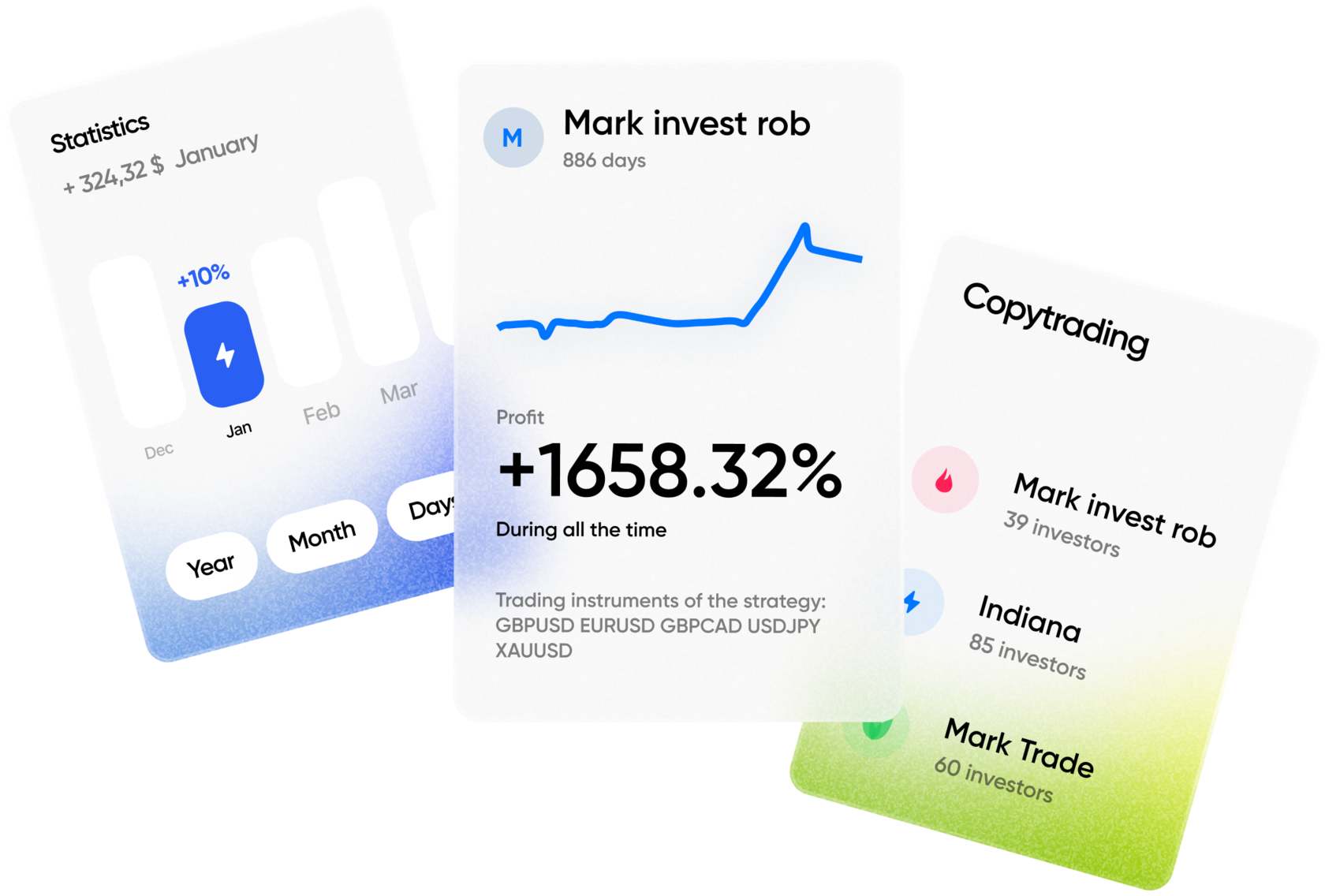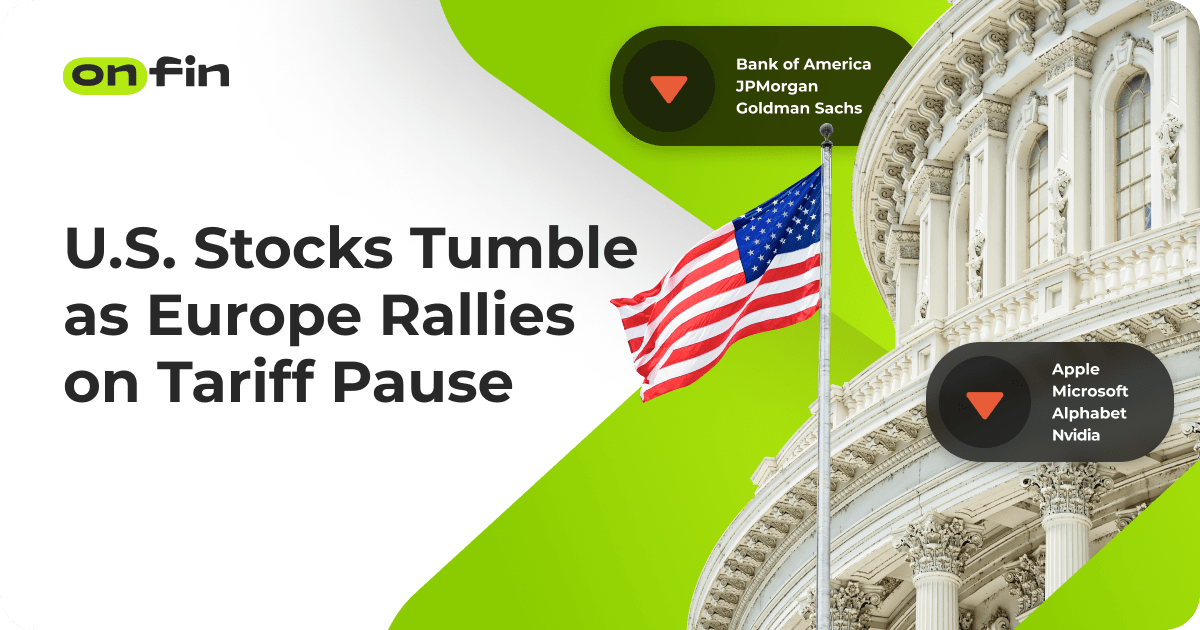On Thursday, major U.S. stock indices experienced a significant selloff, with each of the three key benchmarks falling by around 4%. The sharp drop occurred despite new government data showing an unexpected decline in consumer prices for March. Meanwhile, European markets posted substantial gains following recent policy announcements from the White House.
According to Reuters, the decline in U.S. stocks came amid ongoing investor uncertainty. The dollar also weakened for the third consecutive session, reflecting broader concerns across global financial markets. The Dow Jones Industrial Average lost approximately 4.1%, while the S&P 500 dropped 3.9%. The Nasdaq Composite saw a decline of 4.3%, marking one of its steepest daily losses in 2025.
The downturn came even after President Donald Trump announced a temporary suspension of tariffs for several countries—excluding China. The decision was made on Wednesday and was intended to ease international trade tensions. However, markets in the United States responded negatively, with analysts pointing to lingering concerns over policy stability and the long-term economic outlook.
Art Hogan, chief market strategist at B. Riley Wealth, commented that despite positive inflation data released the day before, market participants realized they are still facing significant uncertainty. According to Hogan, geopolitical risk and unpredictable tariff policy remain primary sources of volatility.
In contrast, European stock markets posted strong gains on Thursday. Regional indices rallied across the continent, with increases ranging from 3.8% to 4.7%. The STOXX Europe 600 index closed up 4.5%, recording its largest single-day increase since late 2022. The DAX in Germany rose by 4.4%, while France’s CAC 40 gained 4.2%. The FTSE 100 in the UK added 4.1%.
Southern European markets also joined the rally. Spain’s IBEX 35 jumped 4.3%, and Italy’s FTSE MIB gained 4.5%. Investors in these markets responded positively to the White House’s tariff pause, seeing it as a short-term boost for global trade stability.
The euro strengthened against the dollar, rising to $1.096 by the end of the trading session. Bond yields in several European countries declined slightly. German 10-year bunds traded at 2.41%, down from 2.46% the previous day. The U.S. dollar index fell to 103.7, its lowest level in three weeks.
On the commodities front, oil prices were mixed. Brent crude rose 0.7% to $79.20 per barrel, while West Texas Intermediate (WTI) remained stable at $74.80. Gold prices continued their upward trajectory, trading above $3,080 per ounce for most of the day. Silver and platinum also posted moderate gains.
Investor focus is also shifting toward corporate earnings season in the United States. On Friday, several major U.S. banks are scheduled to report quarterly financial results. These include JPMorgan Chase, Citigroup, and Wells Fargo. Analysts are watching closely for signs of profit margin pressure and consumer loan performance.
The financial sector experienced significant declines on Thursday. Bank of America shares dropped 4.6%, JPMorgan fell 3.9%, and Goldman Sachs lost 4.2%. Insurance companies and asset managers also saw losses ranging from 2% to 4%.
Technology stocks also contributed to the broader market decline. Apple shares dropped 4.4%, Microsoft fell 4.1%, and Alphabet declined 3.8%. Semiconductor firms were hit especially hard. Nvidia shares fell 5.2%, while Intel dropped 4.9%.
Economic data released Thursday morning showed that the U.S. Consumer Price Index (CPI) fell 0.2% in March. This marked the first monthly decline since October 2023. Core inflation, excluding food and energy, rose just 0.1%, below economists’ expectations. The figures briefly lifted market sentiment before the afternoon selloff accelerated.
In Asia, markets closed mixed earlier in the day before the full impact of U.S. announcements was felt. Japan’s Nikkei 225 declined 0.6%, while China’s Shanghai Composite rose 0.5%. Hong Kong’s Hang Seng Index closed flat.
The White House stated that the tariff suspension will last for an initial period of 60 days. Further extensions may be considered based on the outcome of upcoming negotiations. China remains excluded from the measure due to its continued use of retaliatory tariffs.
Trade representatives from the U.S., European Union, and Japan are expected to hold discussions next week. The talks will focus on establishing common ground for tariff reductions and supply chain coordination. No official timeline has been released for potential long-term agreements.
In the coming days, financial markets are expected to remain volatile. Investors will continue monitoring earnings reports, inflation trends, and statements from central banks. The Federal Reserve’s next policy meeting is scheduled for later in April.
Until then, both domestic and global markets may see continued swings as traders respond to new data and geopolitical developments. Safe-haven assets, including gold and government bonds, are expected to remain in high demand.







